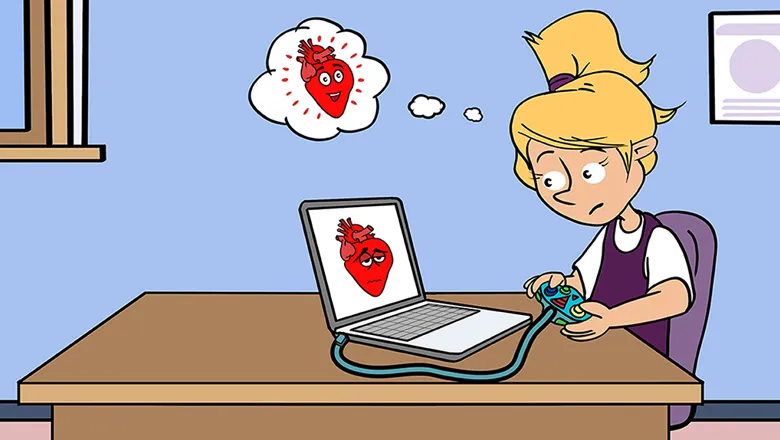We made an analogy with PS5 to demonstrate how the computer power of a supercomputer equates to the power of 90,000 PS5s that we as researchers need in order to perform some of these cardiac simulations.
Cristobal Rodero, Research Assistant, School of Biomedical Engineering & Imaging Sciences
30 March 2022
Doctoral researcher explains his thesis to children in Frontiers for Young Minds
Doctoral researcher Cristobal Rodero has published a new paper on cardiac simulations in Frontiers for Young Minds, a journal reviewed by children

Doctoral researcher Cristobal Rodero has published a new paper on cardiac simulations in Frontiers for Young Minds, a journal reviewed by children, co-authored by his two PhD supervisors Professors Pablo Lamata and Steven Niederer.
Cardiac Simulations: computer games to mend broken hearts was written specifically for young readers. The paper is based on the doctoral thesis of Mr Rodero which looks at cardiac simulations, where rules of physics and mathematics are applied to digital versions of hearts to see how they work when they are healthy and how will they change or react when they are sick and a new therapy is applied, for instance. The article also takes readers through the physiology and imaging of the heart.
In order to make it understandable for a young reader, the work is analogised mainly with video games.
Mr Rodero said that in a video game while a character is not ‘alive’, players can try different techniques to keep it alive. This is the same idea with cardiac simulations – the cardiac model is the ‘character’ and the laws of physics and mathematics are the ‘rules of the game’.
To explain basic physiology of the heart, the researchers also made an analogy with a submarine and blood pressure: the heart is like a submerged submarine, and the water coming in if a window is opened, is analogous of the blood entering the ventricle when the valve is opened.
The benefit of translating a journal paper or an academic, technical idea into plain English for children are two-fold Mr Rodero said.
“It ignites curiosity for young minds who might not have otherwise thought about science or had an interest in the sciences. It can make them more interested in having scientific careers.”
Mr Rodero said that it is also very useful for researchers themselves to explain a concept such as cardiac simulations. For instance, they needed to take a step back, and change the register of the language considerably – describing technical words very plainly.
“That helps you understand better what the base of your research is. The more we advance in research, the more specialised we become, and we can easily forget the general picture of what we are doing. This type of exercise can help you not forgetting where we came from and where we are going.”
Mr Rodero's PhD supervisors said: "This project is important to both inform younger audiences about how technologies they may be familiar, with in computer games, can be applied in healthcare and to increase interest in this exciting new area of computational medicine."

